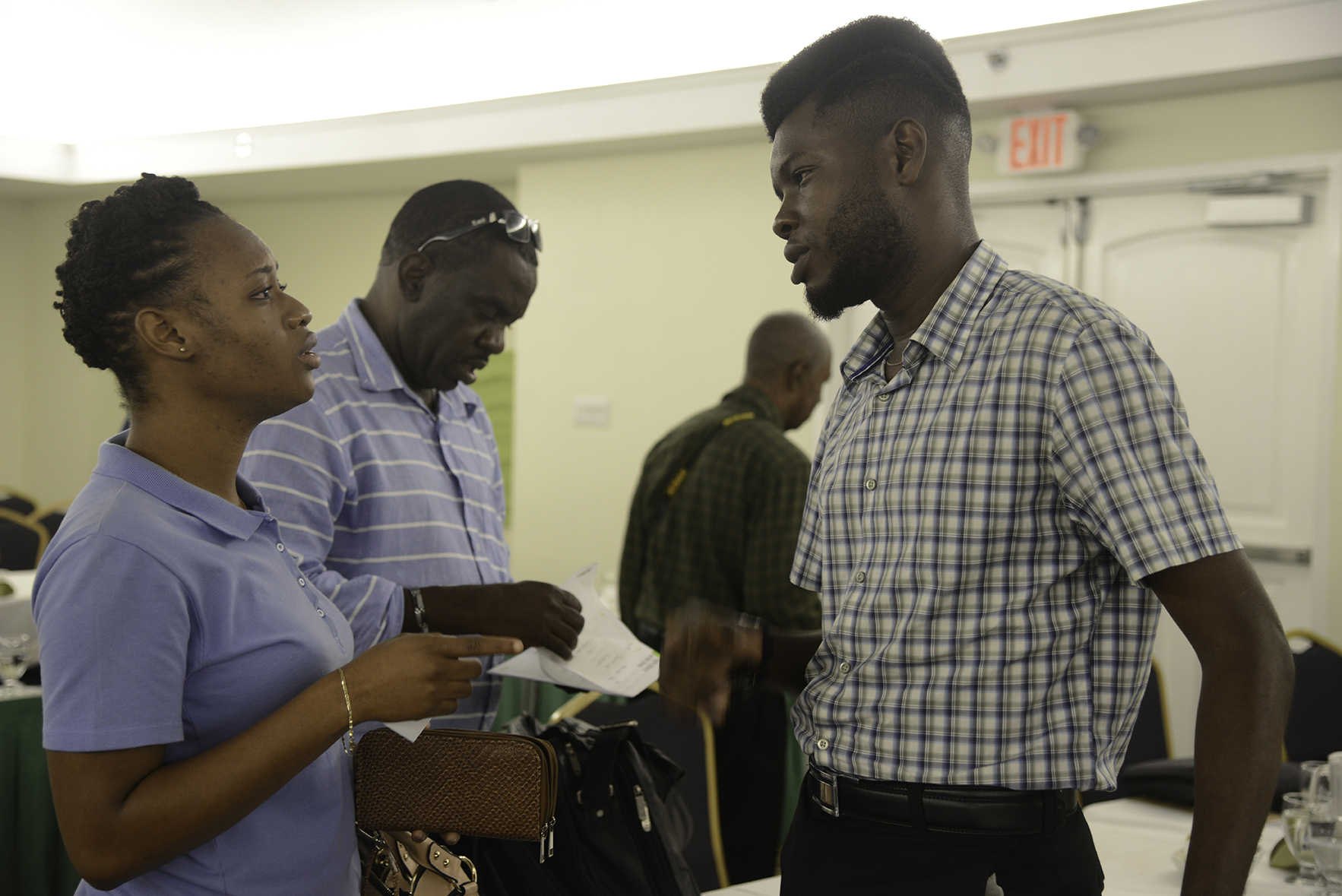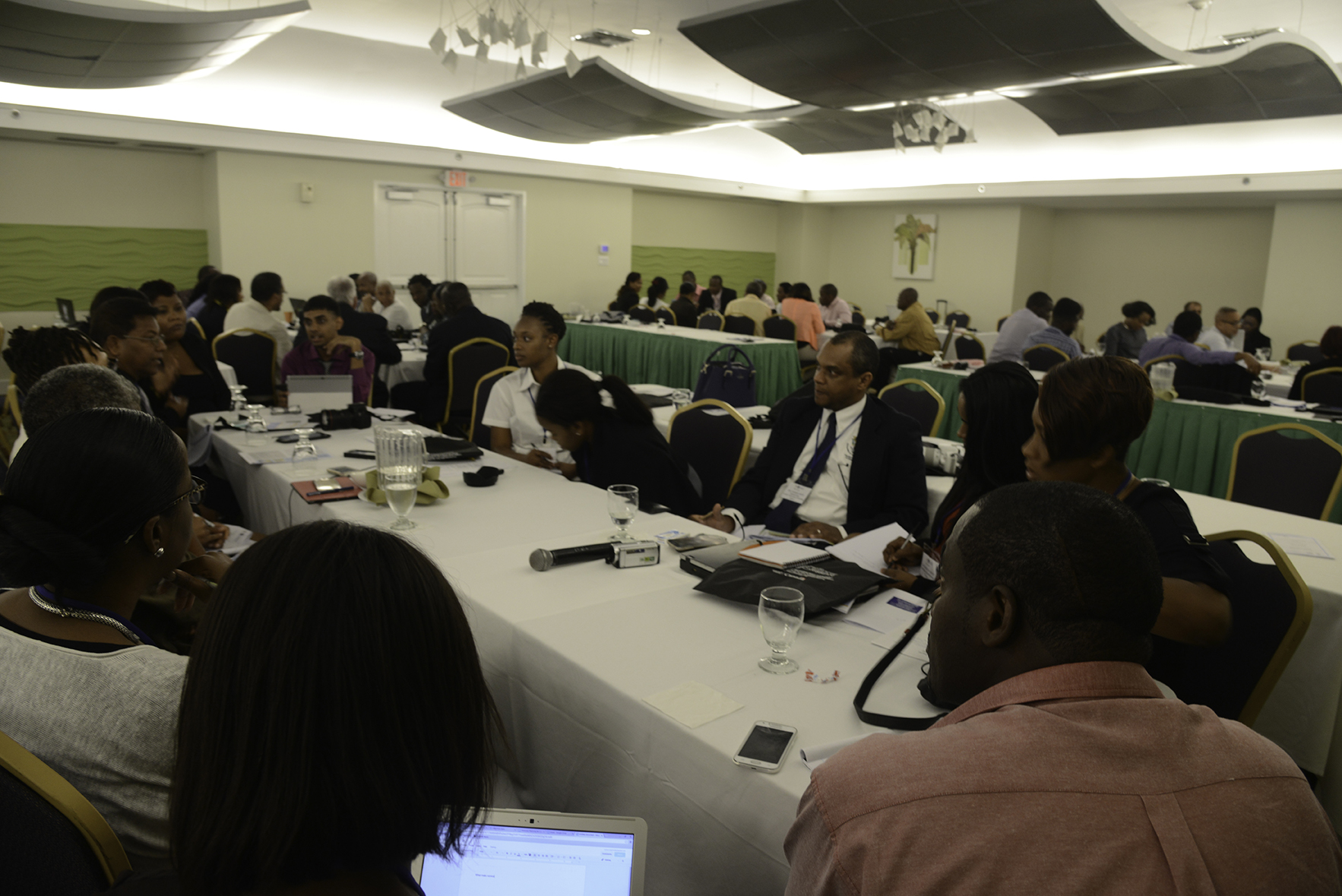Caribbean Media Workers Congregate at IMPACT Justice Media Law Workshop
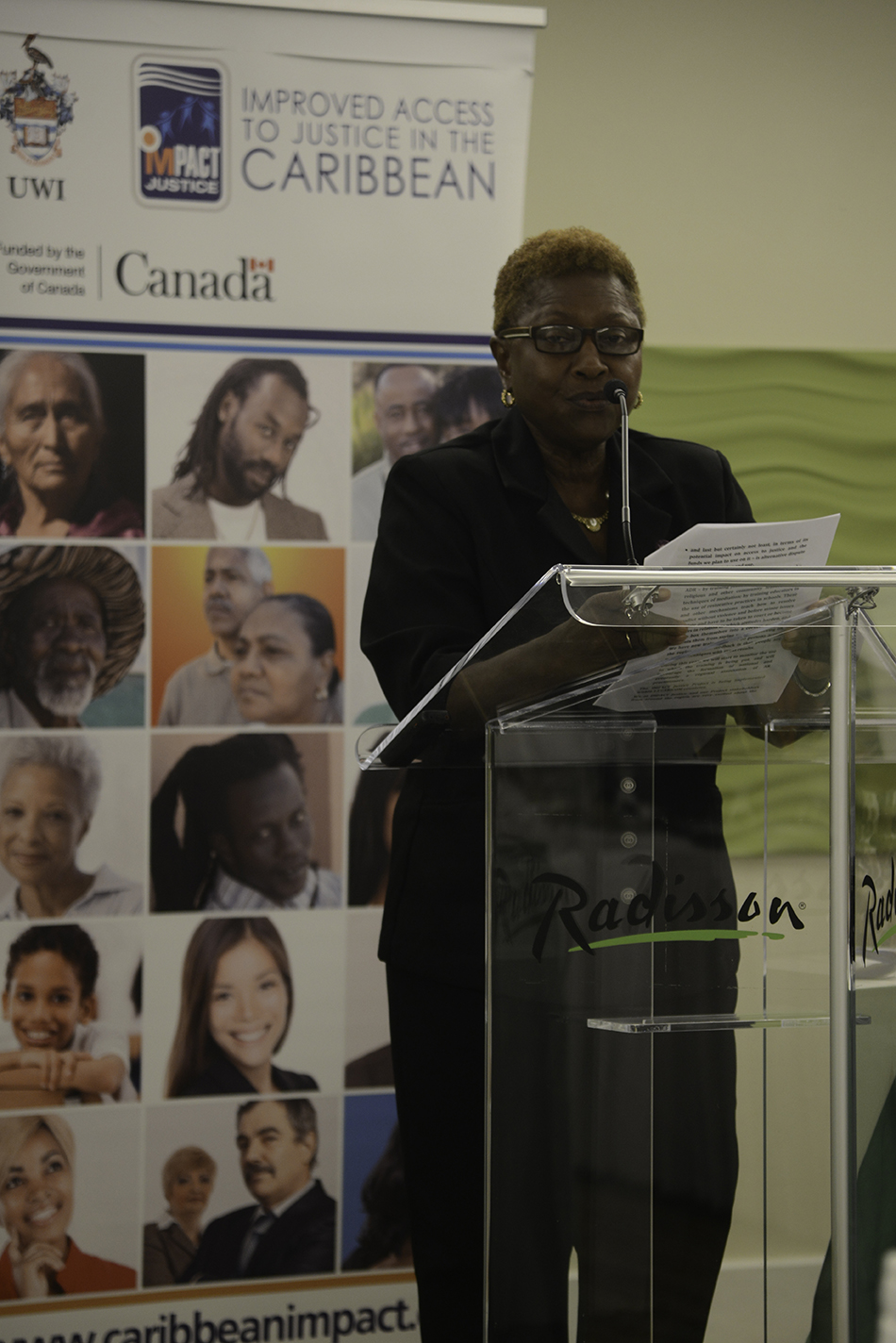
68 Caribbean media practitioners, legal educators and students got the opportunity to improve their knowledge of media and law at the Improved Access to Justice (IMPACT Justice) Media Law Seminar held in Barbados from February 23-24. The representatives from 13 CARICOM countries discussed topics such as the rights of journalists, defamation, public interests, gender issues, intellectual property, online reporting and media on e-commerce. Among those present were the representatives from the University of Technology, Jamaica which included Alfred McPherson, Dean of the Faculty of Law; journalism lecturer Andrew Smith and journalism students Crystal Taylor and Alecia Clarke.
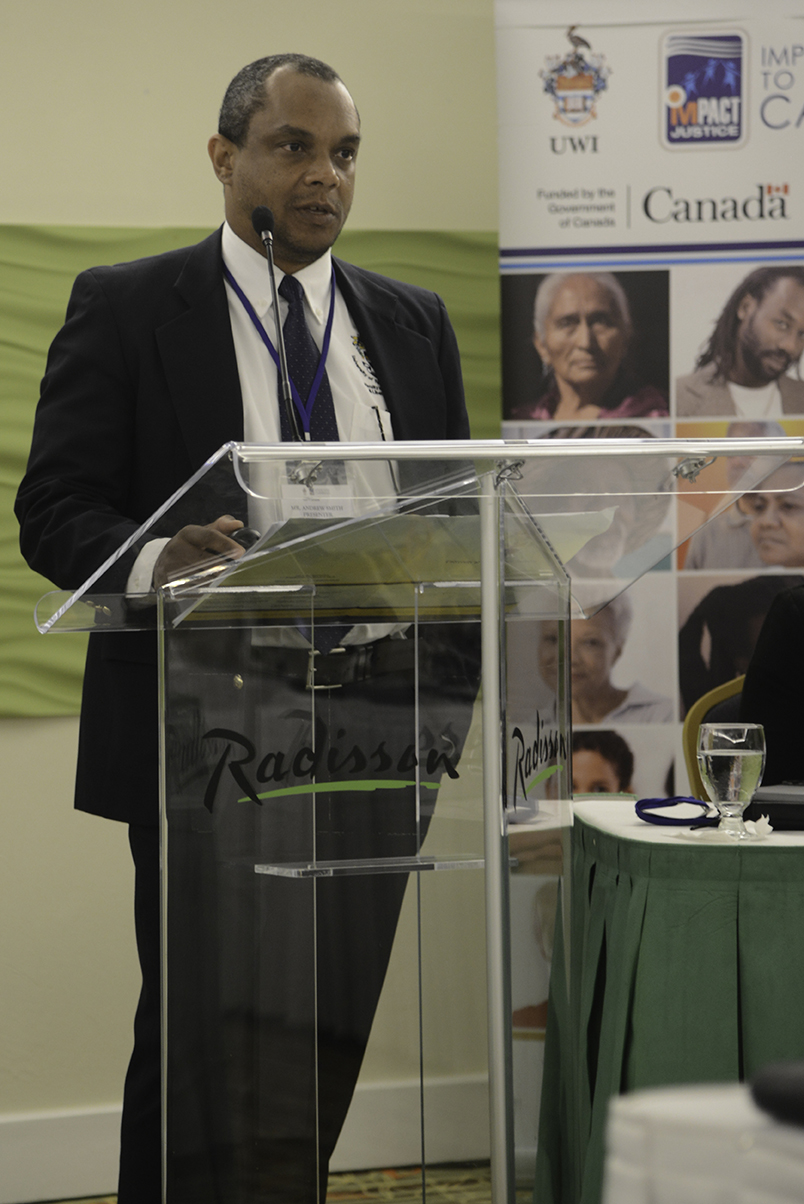
The tone of the two day seminar was set by Andrew Smith who emphasised the rights and responsibilities of journalists to the public. This was in the context of Article 19 of the United Nations Universal Declaration of Human Rights which refers to “the right to freedom of opinion and expression”. The recurring theme of the seminar was the ‘public’s right to know’ as it was agreed that the right and responsibility of a journalist is to provide information that is within the public’s interest. However, this proved to be a challenge as there are some restrictions on reporting especially in courtroom cases. Several participants chimed with their experience or knowledge of how journalists are treated when they go to report courtroom matters.
Among the discussion of interest included the threat of lawsuits to journalists within the Caribbean. Karen de Souza , National Coordinator of Red Thread Guyana, stated that these threats have caused media in Guyana houses to be conservative in their reporting. Another topic placed on hot coals was the issue of citizen journalism. Some participants refused to accept it as a rational term for a type of journalism, others understood that the term was already coined outside the Caribbean and the suggestion was put forth that in order for the term to be challenged, some form of commentary in writing must be produced
On the cooler side of the seminar, participants were lectured on intellectual property rights. Fiona Hinds, Partner at Carrington & Sealy Law Firm, Barbados, commented that once reporters adopt information in large quantities they must appreciate that the information did not originate with them; as such it, is not their right to claim ownership of said information. Barry Randall, Managing editor, Caribbean News Now, spoke on online reporting, noting that good reporters need to have good news judgement and an efficient grasp of online reporting tools.
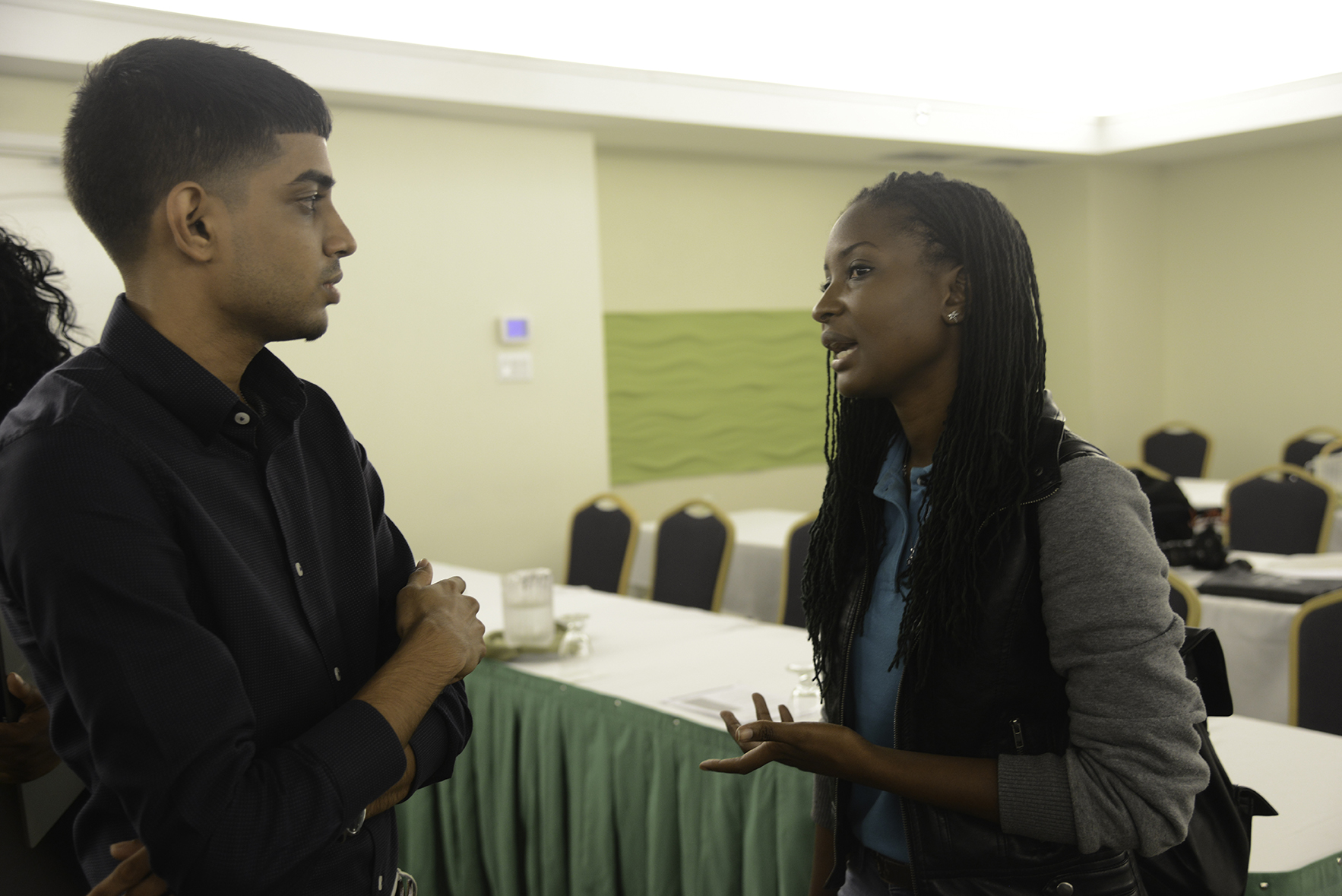
The axis of the discussions for young aspiring media professionals was the point where all participants of the seminar agreed that there lack of efficient training in the present generation. Aspiring media practitioners, especially in the region, are not informed about the best practices of journalism and that they are also untrained and not well equipped to handle the rigors of the field. University of Guyana Law student, Chevy Devonish, commented that the younger generation are not even concerned about the fact that they do not know their history.
